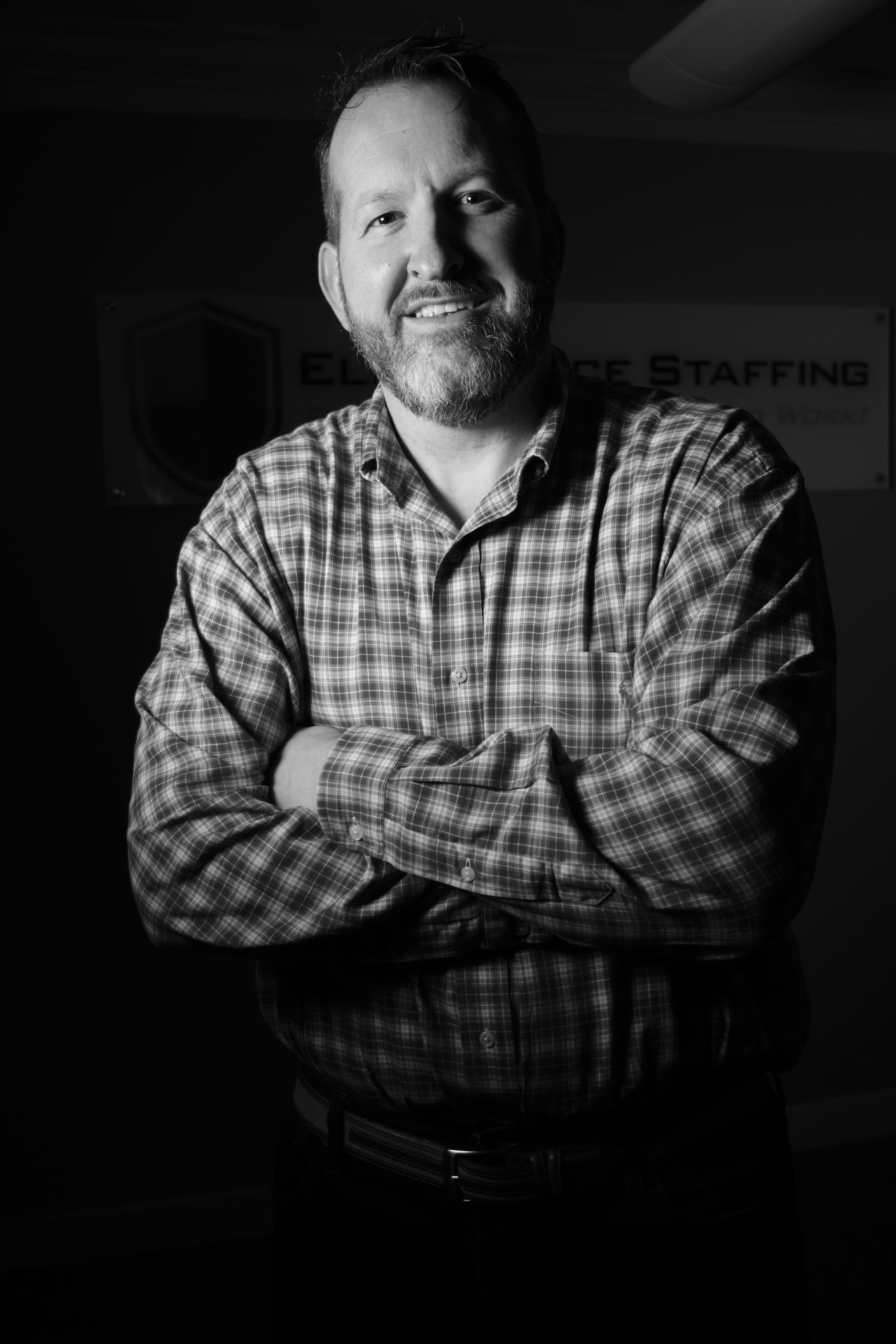Here at Elite Force Staffing, we have over 50 combined years of experience. Our podcast host Brent Waters, also the Vice President of Elite Force Staffing has spent over 15 years in the all trades staffing industry.

So it’s safe to say, he knows a thing or two.
This article was compiled by using a few different key points from podcast episodes with the dialogue cleaned up a little bit. If you’d prefer to listen to the episodes, check them out here. Enjoy!
Mistakes Are The Way We Learn
Initially, while toying with the idea of a podcast, we were trying to find topics that we thought were relevant. And one of the first things that jumped into my head was this idea of providing insight/lessons from an industry veteran.
I have been in this industry for quite a while and part of my success can be attributed to evolving over time and constantly learning new lessons. Some of these have been really painful over the years. But like I tell my kids, mistakes are the way we learn.
My own mistakes have allowed me to teach and train a lot of really great folks over the years. It helps them to not make those same mistakes and gives them a better way of looking at things.
Consider that my first lesson.
Next, we’ve got “Don’t judge a book by its cover.” Both in regards to prospective employees and prospective clients. I’ll also touch on a few other key points relating to being prepared, doing what you say you’re gonna do, and the kinds of questions that should be asked to ensure all parties involved know exactly what’s going on.
Don’t Judge A Book By It’s Cover
I’ve seen a lot of people make this mistake. And it’s a key point I try to consistently drive home when helping others.
Say you’ve got a few workers going out on a job site soon. You’ve got a 10am appointment set this morning to meet them before that.
It’s 9:45am and this shiny dodge truck pulls up.
The guy gets out. He’s decked out in Carhartt gear, he’s clean cut, got a job box in the back of the truck, and has a great resume. You just know this guy’s going to be a total stud.
Then the next guy shows up. His car door is duct taped, he looks like he crawled out of a ditch somewhere and overall just looks like he’s had a really really bad day.
Perfect scenario for that book cover judging.
But a couple days later you put these two guys to work.
Joe Cool with the new truck and all the tools gets out on the job. But within an hour they ask him if he can sweep the floor or something while they’re waiting for some materials.
He says he doesn’t care for that and then walks off the job. You never hear from him again.
Then your buddy with the car door duct taped on turns out to be the best carpenter that’s ever worked for you. And he’s got no problem sweeping the floor while waiting for some materials.
The clients call and say something along the lines of “I don’t know where you found this guy, but he’s incredible and if you find anybody else like him, send them our way”
Same Can Be Applied To Those Very Clients As Well
Not judging a book by it’s cover can be applied to clients as well.
I used to have a lot of sales reps come in my office and say “Hey, I went by that company you mentioned and, yeah about that office, I don’t know man it’s pretty small, they don’t have a website and they don’t even have a legit company email account. I’m just really worried, I mean, if we did work with them, would they be able to pay?”
Then on the flip side you go out to this massive general contractor who has got this huge shiny building. You make all these assumptions about them and compare them to this little small mom-pop type shop.
But I learned early on that a lot of the smaller mom-pop type clients were easy to work with. They wanted someone that understood their needs. And they understood the realities of what we do every day. They didn’t have these ridiculous expectations about people. They paid their bills quickly and were easy to communicate with.
The big ones sometimes overextend themselves and might have ridiculous expectations. Not all of course, but some have in the past. Whatever the case, you just have to be careful not to make those mistakes.
Be Prepared For The Inevitable
This is an industry where there’s not a chance that things are going to go bad. It IS going to be bad in some way or the other.
The sooner you know that. The better.
Being prepared for it. Understanding the dynamic. And then trying to be reactive in those situations. That to me, plays a huge part in doing it really well versus doing it really badly.
In addition to being prepared, doing as you say you’re gonna do will serve you well.
Simply Care and Do As You Say You’re Gonna Do
Going across all different industries customer service is in the toilet. It has been. If you provide just a little bit better service than other construction staffing companies, you’ll obviously do better.

But if you provide excellent service, the sky’s the limit. And the interesting thing is that it’s really not that hard to do. All you gotta do is do what you say you’re gonna do.
It isn’t anything really proprietary. It isn’t something that we would be afraid to tell the entire world because it’s pretty basic stuff.
Obviously you really just need to care about your customer and you need to care about the employees that work on site every day. If you don’t, this isn’t for you.
I’ve seen a lot of folks come and go and if you just don’t care in the long run, it catches up with you.
The Devil’s In The Details
Next couple lessons here are all about the details. And asking the right questions.
I can’t tell you how many times in this business that I’ve walked into an office and heard someone pick up the phone and say:
Office Rep: “Oh okay, you need a carpenter? When you need this person? Okay alright, sounds good thank you!”
And then they walk into a recruiter’s office and say:
Office Rep: “Hey, we need a carpenter for Monday”
Recruiter: “Okay that sounds great! Any other information?”
Office Rep: “Nope. Here’s the address.”
I find that to be hilarious. I mean look, that’s where I started. I didn’t know any better.
But by learning from mistakes (whether they’re mine, yours or someone else’s) and asking questions you can improve.
Ask A Ton Of Questions
One of the things I’ve always done is ask a ton of questions. I’ve even had customers tell me that. But I’ve always explained to them that I’m setting expectations both for you and for our employee(s) because we’re trying to hit the home run ball as often as we possibly can.
Whether it’s one person, five people, 30 people, 40 people or whatever number of people the customer needs.
We want to put a round peg in a round hole as often as we possibly can. To me, the way you do that, is by sorting out all these different variables associated with the job.
And depending on the customer, if they’re a big staffing user or not, this can be more of an education process.
I’ve been amazed at how many times I’ve uncovered something during one of those conversations that the client hadn’t really even thought of. The client comes back and says “hey you know, that’s a good point. It’s a good thing we talked about that to you. Come to think of it we probably aren’t ready for these people yet.”
Or maybe an administrative person calls in from an office and says “hey I talked to the owner of the company, he’s looking for five helpers.” But maybe the person actually wants journeymen. That has happened before.
You get guys/girls out on a project and somebody gives them the prints. They take a look and then display a look of panic. Saying “hey you know I’m a helper right? I can’t read these prints.”
So once again we’re setting expectations and we’re trying to make sure that we’ve got a good fit for our customer and for the worker(s).
There’s a million places where trade employment agency projects can go wrong.
It’s all about knowing the right questions to ask and which details need to be known.
What are the job duties? What tools are needed? What about required PPE? Is the job site parking easy to find? What about the job site address? What are the hours of the job? If there’s a safety orientation, when is it? What about background checks/drug checks?
Because there is nothing worse than getting your people out on the job and for some reason having to turn around and say “hey guys you all just have to head home. We’ll try to restart this tomorrow.” It’s a bad feeling for the customer and it’s a bad feeling for our worker who just wants to go out and work and get paid.
Well said Brent! Check out Elite Force Staffing’s podcast. More details. More insight. More personality!
